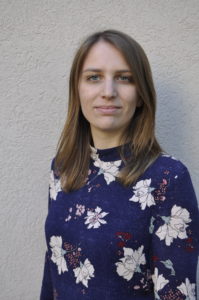I grew up in a small, rural, Western New York town. We had “drive your tractor to school” day, half of my high school had the last name Schmedier, and almost everyone had at least one memory with each person there. However, that did not mean it we were tragedy-proof or somehow hidden from the ills of our society. My senior year of high school, my community was mercilessly shaken when one of my classmates, who had history of mental health problems and intense substance abuse, committed suicide just before the last day of school. This was on Father’s Day: June 15 2014, to be exact.
 His name was Jeff. He listened to metal, worked at a pizza shop, and was the youngest of three sons. He wasn’t just a nameless tragedy that made the list of obituaries in the local paper. He was a member of our community. In large part thanks to a lack of mental health education and a substance abuse epidemic, he ended his 17 years on Earth in a gut-wrenching manner and left behind a loving mother, two brothers, and a father, along with a community that loved him.
His name was Jeff. He listened to metal, worked at a pizza shop, and was the youngest of three sons. He wasn’t just a nameless tragedy that made the list of obituaries in the local paper. He was a member of our community. In large part thanks to a lack of mental health education and a substance abuse epidemic, he ended his 17 years on Earth in a gut-wrenching manner and left behind a loving mother, two brothers, and a father, along with a community that loved him.
Jeff’s story is just one of many stories of substance abuse affecting small communities in painful ways. This tragedy is an example of the lack of mental health education in most small communities, which encourages people to self-treat with illegal substances. I could write a research paper on this subject, and maybe I will do that one day, but for now, I am going to talk about my suspicion.
Small-town America has many great qualities, but a stellar track record with mental health education is not one of them. I honestly do not remember even learning what depression was until I was 13 years old. At that point, I had already learned that it was okay if Mommy and Daddy drink a beer at the Bills game but if they drink five every night, we could talk to a counselor. At that point I had been given a poster explaining the difference between controlled narcotics and candies that looked like them. I had been taught what hard drugs were and how to identify them in case I came into contact with them. However, no one ever told me Mommy and Daddy might drink to deal with bigger issues in their lives. No one ever mentioned ways to deal with feelings that went beyond just “sad.” Instead, I learned a brief definition that was heavily biological at 13, when I was at risk of experiencing depression.
So, we have a lack of good mental health education but fantastic substance abuse education and, at least where I grew up, good resources for those experiencing addiction. However, people protest and fight it. We have dehumanized the addict as a bad person who decided that they wanted to have some fun and who now must learn. However, did we ever look at the humanity of the person? Did we ever ask ourselves about the root cause of the substance abuse? It is not because the kids are poorly educated or simply because of peer pressure. Depression, anxiety, and other common mental illnesses are a part of our humanity, our brokenness, and to ignore that is wrong. Jeff was not diagnosed with his mental illnesses until he was 17. At that point he was experimenting with multiple different drugs rather than taking his prescribed medication. The drugs had been there since he was 14. The mental health resources had not. If my peers had better education, we could have understood Jeff was more than a burnout. If we had a better grasp of the situation, communities would not have to suffer the loss of their children. I don’t know what we should do, but it’s clear there’s work to be done.
Alanna is a senior majoring in Spanish and intercultural studies.
